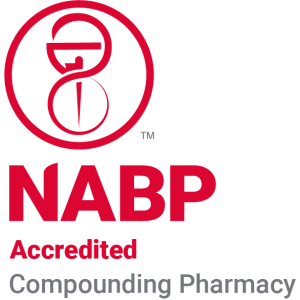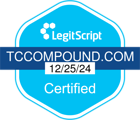
Patients do not want to hear that they will just have to live with pain
Managing pain can be difficult in those with chronic conditions such as autoimmune diseases. Low dose naltrexone (LDN) may help.
What is low dose naltrexone (LDN)?
Naltrexone, when used in low doses, is believed to have potential benefits for managing chronic pain and certain autoimmune disorders.
The exact mechanism by which low-dose naltrexone works for pain relief is not fully understood, but it is thought to modulate the immune system and help with various pain and autoimmune conditions.
Many patients have been living with pain for years and have had many failures with pain medications, including opioids. They are looking for any improvement in pain and quality of life.
Often, with some painful conditions, patients will never be completely pain-free; the goal is to see some significant improvement. We want those people to be able to minimize their level of pain without using opioids.
People with painful disorders of the immune system (autoimmune diseases) often have some level of pain that could be improved.

Why use low dose naltrexone (LDN)?
Low dose naltrexone is not an opioid and has multiple unique mechanisms that may help in reducing pain.
How does LDN work in pain management?
Low dose naltrexone is often prescribed for pain, but its mechanism of action for pain relief is not fully understood. Researchers have proposed theories of ways in which LDN may work to help manage pain.
Modulation of the immune system
Low dose naltrexone is believed to reduce inflammation, and alter the release of certain cytokines (immune signaling molecules). In conditions where inflammation contributes to pain, such as autoimmune diseases or chronic inflammatory conditions, LDN’s anti-inflammatory effects may help alleviate pain.
Endorphin release
Naltrexone, even in low doses, is an opioid receptor blocker. It may cause the body to temporarily increase its production of endorphins, which are natural pain-relieving substances produced by the body. This increase in endorphins could potentially lead to pain relief.
Neuroinflammation reduction
Low dose naltrexone may have a role in reducing neuroinflammation, which is inflammation in the nervous system. In conditions like neuropathic pain, where inflammation in the nerves plays a role, LDN’s anti-inflammatory properties might provide relief.
Because LDN is an opioid receptor blocker, caution should be taken when prescribing LDN to patients taking opioid-type pain medications such as Morphine, Oxycodone, Hydrocodone, and Fentanyl.
Restoration of opioid sensitivity
Low dose naltrexone is thought to temporarily block opioid receptors, which can lead to an upregulation of these receptors over time. This means that when LDN is discontinued, the body may become more responsive to the natural opioids produced by the body, potentially providing pain relief.
Potential clinical uses and trials for LDN
- ALS (Lou Gehrig’s Disease)
- Addiction
- Addison’s Disease
- Alopecia Areata
- Alzheimer’s Disease
- Amyotrophic Lateral Sclerosis
- Ankylosing Spondylitis
- Anxiety
- Atopic Allergy
- Atopic Dermatitis
- Autism Spectrum Disorders
- Behcet’s Disease
- Benign Prostatic Hypertrophy (BPH)
- Brain Fog
- COPD
- CREST Syndrome
- Celiac Disease
- Chronic Fatigue Syndrome
- Crohn’s Disease
- Depression
- Dermatomyositis
- Diabetes Mellitus Type 1
- Eczema
- Ehlers-Danlos Syndrome
- Endometriosis
- Fibromyalgia
- General Anxiety Disorder
- Granulomatosis
- Graves’ Disease
- HIV/AIDS
- Hailey-Hailey Disease
- Hashimoto’s Disease
- Hypothyroidism
- Irritable Bowel Syndrome (IBS)
- Kawasaki’s Disease
- Lupus
- Lyme Disease
- Meniere’s Disease
- Migraine Headaches
- Multiple Sclerosis (MS)
- Obsessive Compulsive Disorder (OCD)
- Pandas Disease
- Parkinson’s Disease
- Pediatrics
- Pemphigoid
- Periodontal Disease
- Polycystic Ovary Syndrome (PCOS)
- Post-Traumatic Stress Disorder (PTSD)
- Primary Lateral Sclerosis (PLS)
- Psoriasis
- Psoriatic Arthritis
- Restless Leg Syndrome
- Rheumatoid Arthritis
- SIBO
- Sarcoidosis
- Scleroderma
- Sjorgen’s Syndrome
- Stiff Person Syndrome (SPS)
- Transverse Myelitis
- Ulcerative Colitis
- Wegener’s
- Weight Loss
- Women’s Health
- Vitiligo













